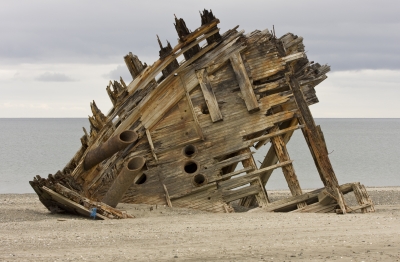Things got spooky this year at Grosse-Ile School/CLC on the Magdalen Islands, as Secondary Cycle 2 Students researched and produced a short film about a haunted shipwreck.
The story was inspired by traditional tales from local history and culture. In preparation, students sought out traditional ghosts stories from community members, and researched sites of historical shipwrecks around the Magdalen Islands. The story they tell in their movie is fictional but inspired by the stories they were told.
The teacher at the helm of this interesting learning project, Julie Boisvert admitted there were several challenges along the way including scheduling with a professional from the Cégep des Îles who helped teach specific movie making techniques. Despite some difficulty in arranging schedules, it was an extremely important factor in the project being steered to success, “Through this partnership they were able to learn about the rigorous work involved in movie making”.
Mme Boisvert said “Despite any difficulties, students remained dedicated to the project. Students felt great pride in their achievement!” She notes that with a dynamic project like this one, it is more possible to create and organize projects where each student’s strength and talent can be used and brought to light.
The movie project was integrated into their Media class, but included cross curriculum links with Geography, History and Citizenship Education, Français and Arts Education. The students were given a grade for their work and involvement through the various steps and stages of the production of the short film. Beyond academic outcomes, Mme Boisvert added that participating in the film project helped students to better appreciate their small and isolated community, that “It is a rich and interesting [place] which is worth sharing with the rest of the world.”

